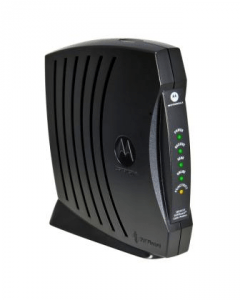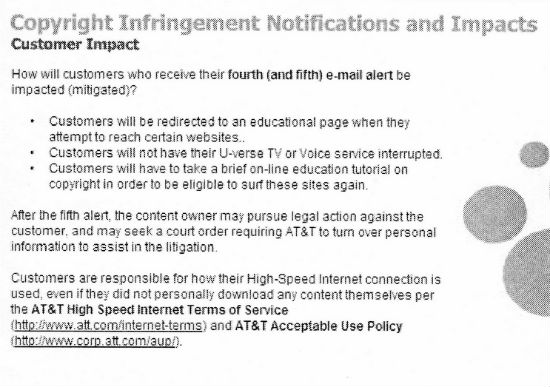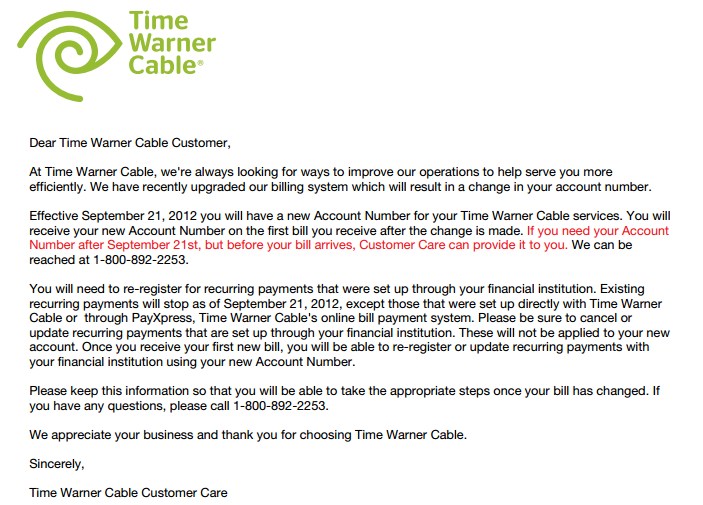Best Buy employees in upstate New York are advising Time Warner Cable customers to dump Time Warner phone service and buy their own cable modem to completely avoid any additional monthly fees.
“We don’t have modems that will support Time Warner’s voice services, so basically any customer that has that bundle either has to make the decision to get rid of that service or deal with paying for that service every month,” said Syracuse Best Buy employee Drew Cacciola.
Cacciola told a Syracuse television station Time Warner’s supplied equipment is “old and refurbished” and that if customers purchase their own equipment, they will have the latest technology and won’t have to worry about ending up with another refurbished cable modem if the current modem fails.
“If [a new modem] breaks down you can get a new one you don’t have to send it back to them and you won’t get another refurbished one – you get a new one,” said Cacciola.
In fact, Time Warner phone customers do not have to cancel their phone service to avoid the modem fee, but they will be stuck with two pieces of equipment — a Time Warner-supplied eMTA that manages the phone service (with its Internet ports disabled) and the customer’s own purchased cable modem. For now, Time Warner is not charging customers for eMTA equipment used exclusively for its phone service.
Best Buy does not carry some of the models on Time Warner’s approved modem list, and the cheapest one WSYR reporters could find cost around $60, meaning it will take just over a year to recoup the cost of the modem.
Time Warner Cable’s modem fee continues to create consternation for customers, especially when they learn the same piece of equipment used for both Internet and phone service costs $3.95 a month when used for broadband, but is free when used only for phone service.
Stop the Cap! reader Ben argued with a Time Warner representative trying to understand the reasoning.
“So, let me get this straight about the modem fee: If I have phone there is no fee but if I use the same modem to also get Internet, there is a fee?,” Ben asked.
Yes, came the answer. The explanation:
“About the modem fee: Our costs for Internet equipment keep increasing and unfortunately we could not continue to absorb the costs related to their purchase, maintenance and repair,” wrote a Time Warner employee named ‘Paul-E.’ “Leasing a modem ensures you have the most up to date and capable equipment to take advantage of our services as we offer faster speeds and additional functionality. These events sometimes require that we replace your current equipment to give you the best experience.”
Time Warner’s explanation for the new modem fee sounds plausible, but unfortunately for “Paul-E” (and the company), much of it is demonstrably false.
Investors Business Daily reports the new $3.95 computer modem leasing fee could raise up to $500 million a year for the cable company.
“I would look at this as a price increase,” Bryan Kraft, an analyst at Evercore Partners, told IBD via email. “There are some questions that need to be answered before the impact on ARPU (average monthly revenue per user) can be reasonably estimated.”
Stop the Cap! took a look at Time Warner Cable’s financial reports and discovered the company’s capital expenses for its high speed Internet service (and cable modem equipment) have dropped for the third year in a row:
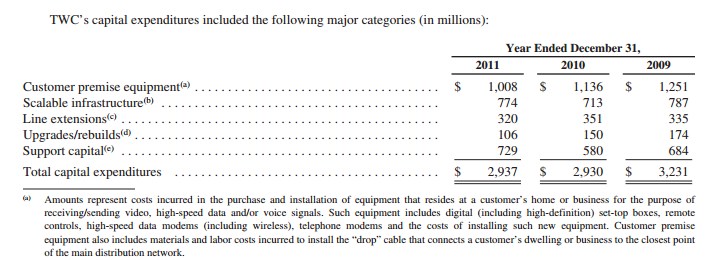
Time Warner Cable’s capital expenditures on customer premise equipment, including cable modems, has dropped for three years in a row.

Capital spending (as a whole) so far this year has decreased as a percentage of revenue to just 12% for residential customers. Time Warner has spent money primarily on extending service to potential business customers.
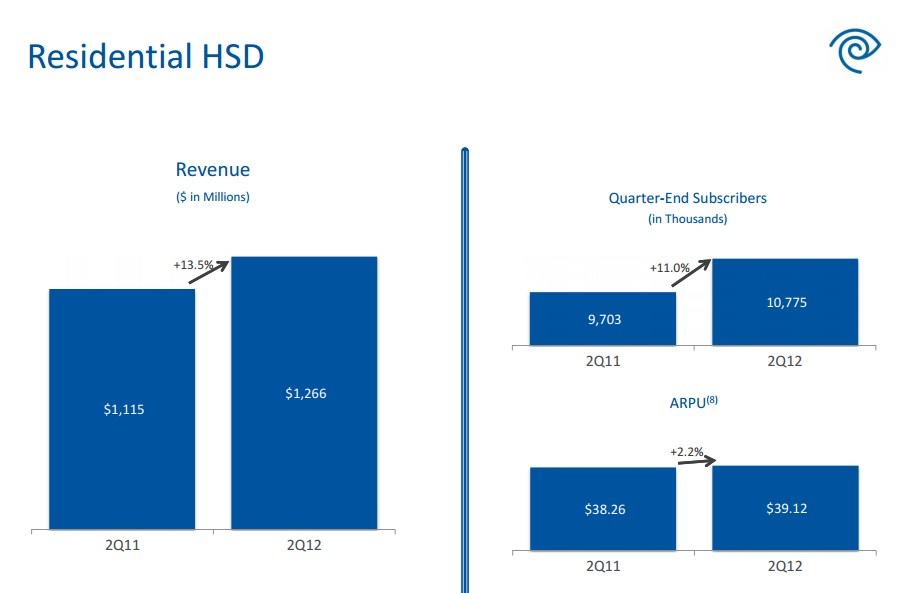
The need to charge you more for a cable modem is questionable when residential Internet service rate increases and customers gravitating to more expensive, higher speed services already deliver the company higher average revenue per customer without spiking their costs.
When the station relayed complaints about long hold times and busy signals for customers trying to activate their purchased cable modem, the response from Time Warner — don’t call on Monday or Friday or around morning or dinner time unless you are prepared to wait on hold.
[flv width=”640″ height=”380″]http://www.phillipdampier.com/video/WSYR Syracuse Time Warner Cable modem charge 10-24-12.mp4[/flv]
WSYR in Syracuse covers the ongoing controversy with Time Warner Cable’s new modem fees, and a Best Buy employee tells Time Warner customers to get rid of the company’s phone service. (3 minutes)


 Subscribe
Subscribe
